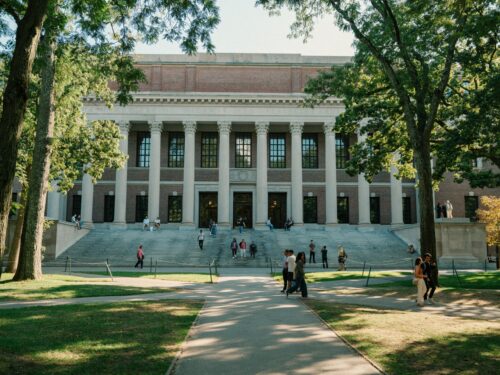On May 22, the Trump administration revoked Harvard University’s ability to enroll international students, escalating ongoing tensions between the White House and this Ivy League institution. At a University with approximately 6,800 international enrollees across all its graduate and undergraduate Schools—totaling over a quarter of the institution’s students—this announcement places the status of thousands of current and incoming individuals at risk.
In a letter to Harvard President Alan M. Garber ’76, Homeland Security Secretary Kristi Noem announced that the University’s certification under the Student Exchange Visitor Program was suspended “effective immediately.”
The New York Times received access to an additional message sent to the Trump administration where the Department of Homeland Security delivered a clear warning to Harvard’s international students: “Harvard can no longer enroll foreign students, and those currently enrolled must transfer or risk losing their legal status.”
The decision follows Harvard’s partial compliance on April 30 with a federal request for international students’ disciplinary records and campus activities, including participation in any protests. Noem warned that failure to comply could result in the loss of SEVP certification. University officials have not disclosed the specific details of the information provided. However, Noem claimed that University’s disclosures were insufficient in her letter. “Harvard’s counsel provided information that he represented as responsive to my request. It was not,” she wrote.
“Consequences must follow to send a clear signal to Harvard and all universities that want to enjoy the privilege of enrolling foreign students, that the Trump Administration will enforce the law and root out the evils of anti-Americanism and anti-semitism in society and campuses.”
Harvard now has less than 72 hours to overturn this mandate. In order to reverse the Trump Administration’s decision, they have to send over a comprehensive response with all digital and print records regarding any illegal activity, dangerous or violent conduct, disciplinary records, and protest engagement of nonimmigrant students over the past five years. This list does not include the previously called for information on visa holders’ maintenance of the minimum coursework to maintain their foreign student status. Noem noted that any false or fraudulent information may subject the university to criminal prosecution.
“Let this serve as a warning to all universities and academic institutions across the country,” a May 22 Instagram post from the DHS read.
A few hours following Noem’s announcement, a federal judge in California issued an order to block the Trump administration from terminating the legal status of international students nationwide. U.S. District Judge Jeffrey S. White of Oakland ruled that the administration’s prior actions had “wreaked havoc not only on the lives of Plaintiffs here but on similarly situated F-1 nonimmigrants across the United States and continues to do so.”
His ruling prohibits federal authorities from arresting or deporting students, or taking any adverse legal action against them based on their legal status—unless those students are charged with violent crimes. This legal protection may temporarily shield Harvard’s international students from immediate removal, even as the University faces mounting pressure to comply.
Rania Jones ’27 (rjones@college.harvard.edu) and Sara Kumar ’27 (sjkumar@college.harvard.edu) write News for the Harvard Independent.

